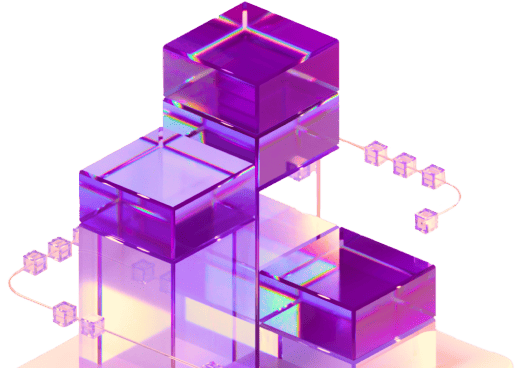In a major move underscoring its commitment to Web3 infrastructure, Google Cloud has announced an expansion of its Blockchain Node Engine (BNE) to include support for three rising blockchain protocols: Sui, Monad, and Berachain. This update significantly enhances the platform’s capability to power scalable, secure, and efficient blockchain node operations, especially for developers, institutions, and staking services.
The announcement comes at a time when institutional demand for reliable blockchain infrastructure continues to grow, and support for cutting-edge Layer 1 networks is becoming increasingly critical for ecosystem developers.
What Is the Blockchain Node Engine?
Google Cloud's Blockchain Node Engine (BNE) is a fully managed, enterprise-grade node-hosting service that simplifies the deployment, maintenance, and security of blockchain nodes. Originally launched with support for Ethereum, the platform is designed to help developers build and run Web3 applications without needing to manage their own infrastructure.
By abstracting away the complexity of node operation, BNE allows developers and validators to focus on staking, building dApps, or running analytics, while Google Cloud handles uptime, scalability, and security.
New Additions: Sui, Monad, and Berachain
The latest expansion brings support for three increasingly prominent Layer 1 networks:
-
Sui: Developed by Mysten Labs, Sui is a high-performance Layer 1 blockchain optimized for fast transaction execution and asset ownership scalability. It’s gaining attention for its object-based model and Move-based smart contracts.
-
Monad: An upcoming smart contract platform focused on high throughput, low latency, and EVM compatibility. Monad aims to address scalability limitations in existing L1s by introducing parallel execution without compromising composability.
-
Berachain: A modular, Ethereum-compatible chain designed with DeFi and staking at its core. Berachain integrates a unique validator-incentivization mechanism powered by “Proof of Liquidity,” which has made it a standout in the emerging chain ecosystem.
By supporting these chains, Google Cloud enables more developers and staking providers to deploy nodes seamlessly, manage workloads effectively, and scale their participation in next-generation blockchain ecosystems.
Strengthening Global Staking Infrastructure
The addition of these chains has major implications for staking infrastructure. As more assets and protocols rely on decentralized staking for security, accessibility to robust and professionally managed node services becomes a key requirement.
With Google Cloud’s BNE support, institutions and staking-as-a-service platforms can:
-
Rapidly deploy validator and full nodes
-
Ensure enterprise-grade uptime and monitoring
-
Access streamlined dashboards and metrics
-
Comply with regional regulatory requirements via cloud controls
This is particularly significant for validators who prioritize sustainability, performance, and low-latency access to global users. Cloud infrastructure like BNE enables edge deployments and region-specific optimizations, something critical in today’s multi-chain world.
Developer Enablement and Ecosystem Growth
Beyond validators, the inclusion of Sui, Monad, and Berachain in BNE opens new possibilities for dApp developers, analytics platforms, and enterprise builders. With one-click deployment and managed upgrades, Web3 developers can focus more on innovation and less on infrastructure.
According to Google Cloud, its roadmap includes additional SDK integrations, monitoring APIs, and compatibility enhancements to further streamline multi-chain development workflows.
This positions BNE as a foundational tool not only for node operators but also for startups and enterprises building services atop modern blockchain networks.
Industry Response
Web3 and developer communities have widely praised the move. Core developers from all three newly added blockchains highlighted the importance of cloud-native node infrastructure in accelerating mainstream adoption.
-
Sui Foundation noted that BNE integration will allow its developers to scale projects more easily, particularly in gaming and asset tokenization verticals.
-
Monad Labs emphasized the importance of performance optimization and reliability that comes with Google’s cloud infrastructure.
-
Berachain Core said the BNE integration aligns perfectly with its push for DeFi-native chains with institutional-grade uptime.
Strategic Implications for Google Cloud
This expansion underscores Google Cloud’s long-term Web3 strategy. While AWS and Microsoft Azure have made moves in the blockchain space, Google Cloud has emerged as a key infrastructure enabler, differentiating through developer-focused services and multi-chain compatibility.
BNE’s expansion reinforces Google Cloud’s positioning in the rapidly evolving world of decentralized applications, particularly in staking, DeFi, and tokenized assets.
Google Cloud also hinted at more upcoming partnerships and chain integrations, aligning with the market’s increasing appetite for secure, scalable blockchain infra.
Future Developments
Looking ahead, Google Cloud plans to roll out support for chain-specific modules, green node hosting, and automated staking deployment within BNE. Additional enhancements like built-in slashing protection and chain-agnostic failover systems are also in development.
These features are expected to empower institutional players, DAOs, and next-gen infrastructure providers with robust tools for blockchain participation at scale.

 English
English
 Deutch
Deutch
 Espanol
Espanol
 Francais
Francais
 Portugues
Portugues
 日本
日本
 한국인
한국인
 Türk
Türk
 Русский
Русский
 Tiếng Việt
Tiếng Việt

